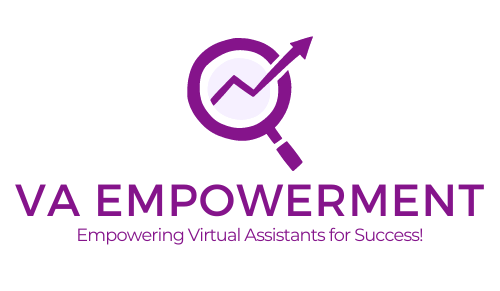Best Methods to Handle Clients From Different Time Zones
Navigating the challenges of working with international clients or clients from different time zones can be a daunting task. As a professional, you understand the importance of effective communication and timely responses, but it can be overwhelming to juggle different time zones and ensure smooth collaboration. This article provides valuable insights and practical tips on how to handle international clients, helping you build stronger relationships, deliver exceptional service, and succeed in a globalized business world.
Planning and Scheduling
Determine Time Zone Differences
When working with international clients or clients from different time zones, it is crucial to determine the time difference between your location and theirs. This will help you schedule meetings and coordinate work effectively. Take into account daylight saving time changes and any other factors that may affect the time difference. There are various online tools and applications available that can help you easily convert time zones and ensure accuracy in your scheduling.
Consider Peak Working Hours
To ensure effective communication and collaboration with your international clients, it is important to consider their peak working hours. This means identifying the times when they are most likely to be available and scheduling meetings or important discussions during those periods. While it may require some flexibility on your part, being considerate of their working hours will help create a productive working relationship and minimize any delays or miscommunications.
Set Clear Expectations for Communication
To effectively collaborate with international clients, it is crucial to establish clear expectations for communication. Determine the preferred method of communication, such as email, video conference, or messaging platforms, and discuss the frequency and urgency of communication. Establishing a communication plan from the beginning will help ensure that both parties are on the same page, and it will also help foster trust and understanding.
Effective Communication
Use Technology to Facilitate Communication
With the advancements in technology, there are various tools and applications available that can greatly facilitate communication with international clients. Utilize video conferencing platforms, project management tools, and messaging apps to enhance collaboration and keep everyone in the loop. These tools not only enable real-time communication but also provide a centralized platform for file sharing, task management, and updates on project progress.
Establish Preferred Communication Channels
Different clients may have different preferences when it comes to communication channels. Some may prefer email for formal discussions, while others may prefer instant messaging for quick updates. It is important to establish the preferred communication channels with your clients and adapt to their preferences. This will help streamline communication and ensure that messages are received and responded to in a timely manner.
Be Mindful of Language Barriers
When working with international clients, it is important to be mindful of language barriers that may exist. English may not be their first language, and miscommunication can occur due to language differences. Be patient and understanding, and if necessary, consider hiring a translator or using language translation tools to ensure clear and effective communication. Also, be conscious of using plain language and avoiding jargon or complex technical terms that may be difficult for non-native English speakers to understand.

Flexibility and Adaptability
Accommodate Different Working Styles
Working with international clients often means dealing with different working styles and cultural norms. Be open to accommodating these differences and find ways to collaborate effectively. For example, some cultures may prioritize hierarchy and formal communication, while others may have a more casual and collaborative approach. By being flexible and adapting your working style, you can build strong working relationships with your international clients.
Adjust Deadlines and Timelines as Needed
When working across different time zones, it is important to be flexible with deadlines and timelines. Consider the time it takes for communication and feedback to occur between you and your clients, and build in buffer time to account for potential delays. Be proactive in discussing and adjusting deadlines as needed to ensure that projects stay on track and expectations are met.
Be Open to Shifting Meeting Times
To accommodate different time zones, it may be necessary to adjust meeting times. Be open to scheduling meetings at non-traditional working hours to accommodate your clients’ availability. This demonstrates your willingness to prioritize their needs and shows respect for their time. By finding a mutually convenient meeting time, you can ensure effective communication and maintain a harmonious working relationship.
Cultural Sensitivity
Research and Understand Cultural Differences
Cultural sensitivity is key when working with international clients. Take the time to research and understand the cultural differences that may impact your communication and working relationship. Familiarize yourself with cultural norms, customs, and business practices of your clients’ country or region. This will enable you to adapt your communication style and behavior accordingly, helping to avoid misunderstandings and build trust.
Avoid Making Assumptions
It is important to avoid making assumptions about your international clients based on stereotypes or generalizations. Treat each client as an individual, and approach interactions with an open mind. Ask clarifying questions and seek to understand their perspective and expectations. By avoiding assumptions, you demonstrate respect for their unique needs and foster a more positive and productive working relationship.
Adapt Your Communication Style
Adapting your communication style to align with your clients’ cultural norms can greatly enhance collaboration and understanding. For instance, some cultures value indirect communication, while others appreciate direct and assertive communication. Pay attention to your clients’ communication patterns and adapt accordingly. Use appropriate greetings, take cues from their communication style, and be mindful of cultural sensitivities to ensure effective and respectful communication.

Building Trust and Rapport
Be Responsive and Prompt in Communication
Timely and responsive communication is crucial for building trust and rapport with your international clients. Respond to their messages, emails, and requests in a timely manner, even if it is just to acknowledge receipt of their communication. Promptly address any questions or concerns they may have, and keep them informed of any updates or progress. Being responsive demonstrates your commitment and reliability, and it helps establish a foundation of trust.
Show Empathy and Understanding
International clients may face unique challenges or have different perspectives due to their cultural background. Show empathy and understanding when interacting with them. Take the time to listen actively and consider their needs and concerns. By demonstrating empathy, you build rapport and trust, creating a positive working relationship based on mutual respect.
Maintain Regular Check-ins
Regular check-ins are essential for maintaining open lines of communication and addressing any concerns or issues that may arise. Schedule regular meetings or update calls to discuss progress, gather feedback, and keep your international clients informed. This helps to establish transparency and demonstrates your commitment to the project. Regular check-ins also provide opportunities to align expectations and ensure that both parties are satisfied with the progress and direction of the work.
Logistical Considerations
Consider Language Translation and Interpretation Needs
Language translation and interpretation services may be necessary when working with international clients who do not speak English as their first language. Assess whether you need to hire professional translators or interpreters to ensure effective communication. Utilize online tools and software that can assist with language translations or schedule meetings with interpreters present to bridge any language barriers that may arise.
Factor in Travel and Time Zones for In-person Meetings
If in-person meetings are necessary, factor in travel and time zone differences when planning. Allow for ample travel time, taking into consideration visa requirements, flights, and accommodation arrangements. Additionally, be mindful of the time difference and plan meetings accordingly to minimize disruptions and maximize productivity during face-to-face interactions.
Ensure Accessibility to Necessary Technology
Having access to necessary technology is crucial when collaborating with international clients. Ensure that both you and your clients have the required software, hardware, and internet accessibility to effectively communicate and collaborate. If needed, provide guidance or support in setting up the necessary technology to ensure seamless communication and minimize potential barriers.
Account for Legal and Regulatory Differences
Research and Stay Updated on Relevant Laws and Regulations
When working with international clients, it is important to research and stay updated on the laws and regulations that may impact your business relationship. Familiarize yourself with the legal requirements in your clients’ country or region, such as data protection regulations or import/export laws. Adhering to these regulations demonstrates professionalism and respect for your clients’ legal obligations.
Seek Legal Advice When Needed
If there are complex legal or regulatory issues involved in your international client engagements, consider seeking legal advice. Consulting with an attorney who specializes in international business can help you navigate any legal complexities and ensure compliance with relevant laws and regulations. Having proper legal guidance not only protects your clients’ interests but also safeguards your own business.
Ensure Compliance and Proper Documentation
Maintaining compliance with applicable laws and regulations is of utmost importance when working with international clients. Ensure that you have the necessary documentation and agreements in place to protect both parties’ interests. This may include contracts, non-disclosure agreements, or intellectual property protection measures. By demonstrating your commitment to compliance, you build trust and mitigate potential legal risks.
Implement Efficient Project Management
Use Project Management Tools for Collaboration
Implementing project management tools can greatly enhance collaboration and streamline communication with international clients. These tools allow you to assign tasks, track progress, and share documents in a centralized platform accessible to all stakeholders. This not only improves efficiency but also provides transparency and accountability, ensuring that everyone is aligned and on the same page throughout the project.
Set Clear Goals and Milestones
Establishing clear goals and milestones is essential for successful project management. Work closely with your international clients to define objectives, deliverables, and timelines. Communicate these goals and milestones, ensuring that everyone understands what is expected. Regularly review progress against these goals and milestones and provide updates to maintain transparency and keep the project on track.
Regularly Assess and Communicate Progress
Regularly assess and communicate project progress to your international clients. Provide timely updates on milestones achieved, challenges faced, and any changes to timelines or deliverables. This helps manage expectations, ensures transparency, and allows for any necessary adjustments to be made. Regular communication about progress promotes trust and demonstrates your commitment to delivering on your promises.
Maintain Professionalism and Respect
Be Punctual and Reliable
Maintaining professionalism and respect is crucial when working with international clients. Be punctual and reliable in all your interactions, whether it is for a meeting, a deadline, or a response to a communication. Respect your clients’ time and show them that you value their business by consistently delivering on your commitments. By being punctual and reliable, you establish a reputation for professionalism and build trust.
Be Mindful of Cultural Etiquette and Customs
Different cultures may have specific etiquette and customs that should be respected. Educate yourself on the cultural norms of your international clients to avoid unintentionally offending. For example, certain gestures or modes of address may be considered disrespectful in some cultures. By being mindful of cultural etiquette and customs, you demonstrate your respect for their traditions and values.
Address and Resolve Conflicts Promptly
Conflicts may arise when working with international clients due to differences in perspectives, expectations, or communication styles. It is important to address and resolve conflicts promptly and professionally. Engage in open and honest conversations to understand the issues at hand and work towards finding mutually agreeable solutions. Promptly addressing conflicts demonstrates your commitment to maintaining a positive working relationship and helps avoid any negative impact on the project.
Continual Learning and Improvement
Reflect on and Learn from Past Experiences
Continual learning and improvement are essential when working with international clients. Take the time to reflect on past experiences and projects, identifying areas for improvement or lessons learned. Analyze what worked well and what could be done differently in future collaborations. By reflecting on past experiences, you can continuously refine your approach and ensure better outcomes in future engagements.
Seek Feedback from Clients
To better understand your international clients’ needs and expectations, actively seek feedback from them. Encourage them to provide constructive feedback on the collaboration process, communication effectiveness, and overall satisfaction with your services. Use this feedback to adjust your approach and make necessary improvements. Demonstrating your willingness to listen and adapt based on feedback builds trust and shows your commitment to delivering exceptional service.
Stay Updated on Global Business Trends
Staying updated on global business trends and developments is crucial when working with international clients. Pay attention to industry-specific updates, changes in market dynamics, and emerging technologies that may impact your clients’ businesses. This knowledge enables you to provide relevant insights and suggestions, positioning yourself as a valuable partner in their success. Continuously educating yourself on global business trends also demonstrates your commitment to staying at the forefront of your field.
In conclusion, effectively handling international clients or clients from different time zones requires careful planning, effective communication, flexibility, cultural sensitivity, and professionalism. By incorporating the strategies and considerations outlined in this article, you can navigate the challenges and complexities of working with international clients and foster strong and productive working relationships. Remember to adapt your approach to meet the specific needs and preferences of each client, and continually seek opportunities for improvement and growth in your international client engagements.

